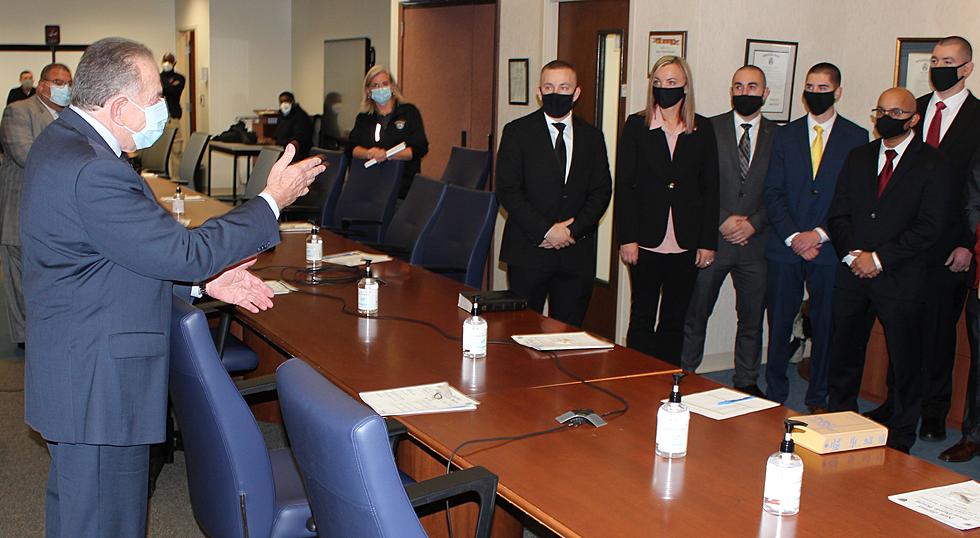
From the cell to real life: NJ’s programs for paroled prisoners
In 2019, New Jersey's prisons handled more than 19,250 inmates. At 15,535, the count of individuals on parole wasn't too far behind.
With parole — the opportunity to leave prison before serving a full sentence — comes a level of supervision, and some stipulations, aimed at ensuring the individual who had been locked up doesn't find another reason to end up behind bars again.
"The basis for parole is to establish that there's not a likelihood of them to re-offend," said Samuel Plumeri, Jr., chairman of the New Jersey State Parole Board.
A little more than 1,600 parole revocations were recorded in 2019, according to the Parole Board. That's down more than 60% from the revocation count in the year 2000, when there were also thousands fewer parolees.
"Their job is not to rearrest these people," Plumeri said of parole officers, who handle about 55 cases each. "That's not their purpose. That's not their mission. Their mission is to help them every way to succeed."
In fact, in the event of an apparent violation of parole terms, officers have the power to guide an offender through programs or other graduated sanctions, instead of immediately revoking his or her parole.
"Many of our officers come from the social sciences," Plumeri added.
Upon approval for parole, a prisoner is informed of the conditions he or she must follow in order to remain free. An individual with substance abuse disorder, for example, may be told to attend Alcoholics Anonymous or Narcotics Anonymous meetings with a sponsor. That individual would also have to secure a job with a paycheck, and perhaps follow a curfew.
"Some are sent to one of our community programs to assimilate back into society," Plumeri said. "Sometimes they need that time to learn how to write a resume. Or perhaps they need help readjusting back into their community so they'll go to a residential treatment program for sometimes up to 180 days."
Nearly 200 contracted community program division resources are utilized by the Parole Board, for services such as career counseling, drug and alcohol treatment, anger management, and gang intervention assistance.
"We know what the most salient needs of offenders typically are, that put them at risk for recidivism and for involvement with the justice system," said Bill Wilson, vice president for reentry programs with Volunteers of America Delaware Valley.
The Camden-based nonprofit is contracted by the Parole Board to provide both residential and non-residential services for released prisoners, as well as the state Department of Corrections to assist individuals who are still on inmate status.
Employment help and assistance with substance abuse are some of the more common needs, Wilson said. Ideally, he said, individuals will be reconnected with prosocial family ties, and avoid past negative influences.
Through PROMISE (Program for Returning Offenders with Mental Illness Safely and Effectively), in partnership with the Parole Board, special attention is paid to those who are exiting the criminal justice system with chronic mental health conditions.
"We enjoy the contribution to not relying on incarceration as a mental health treatment, which is across the country a long-term problem," Wilson said.
Any services, however, will only benefit those who take advantage of them, Plumeri said. Not every prisoner is guaranteed parole, or is willing to go through the process.
"It's not uncommon for an inmate that has a parole date to come before the board and say, 'I just want to do my time,' for whatever reason. Most of it is not having to report to anyone," Plumeri said.
More from WOBM News:





